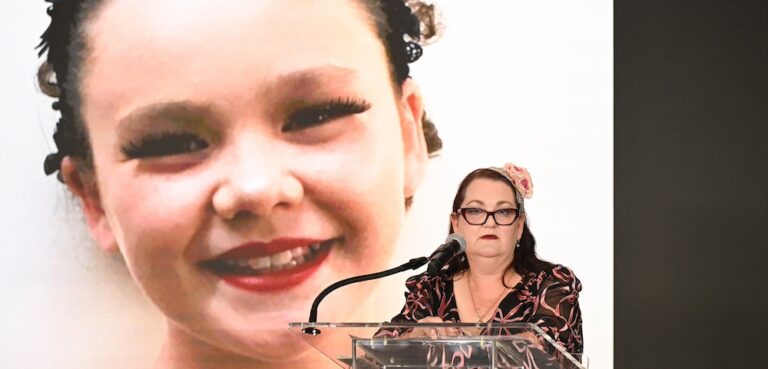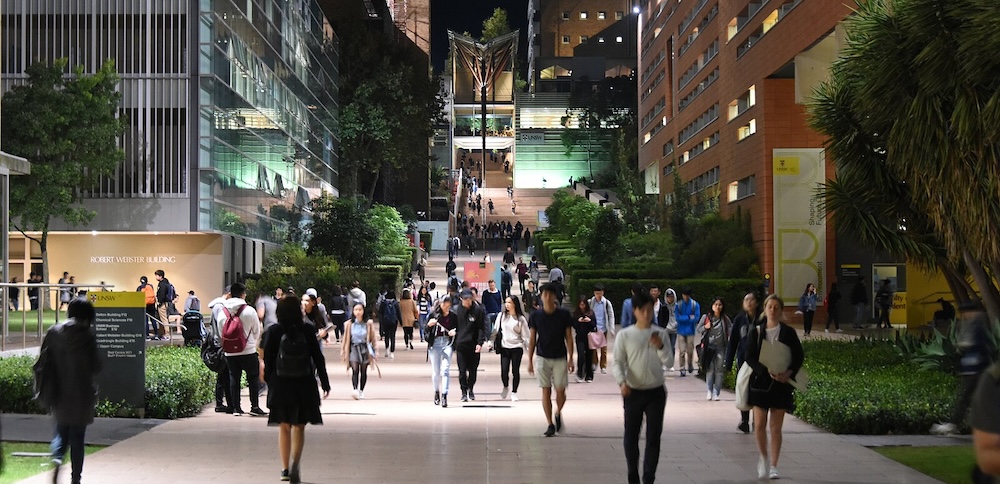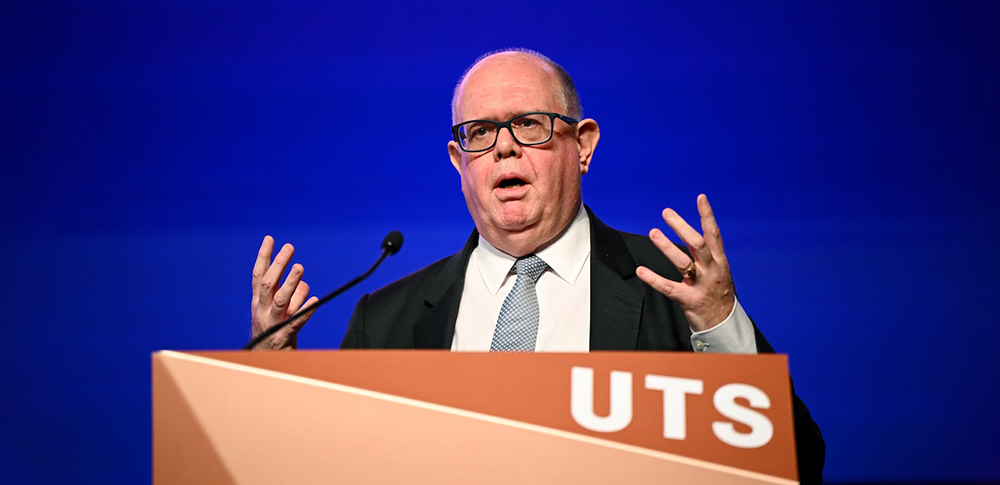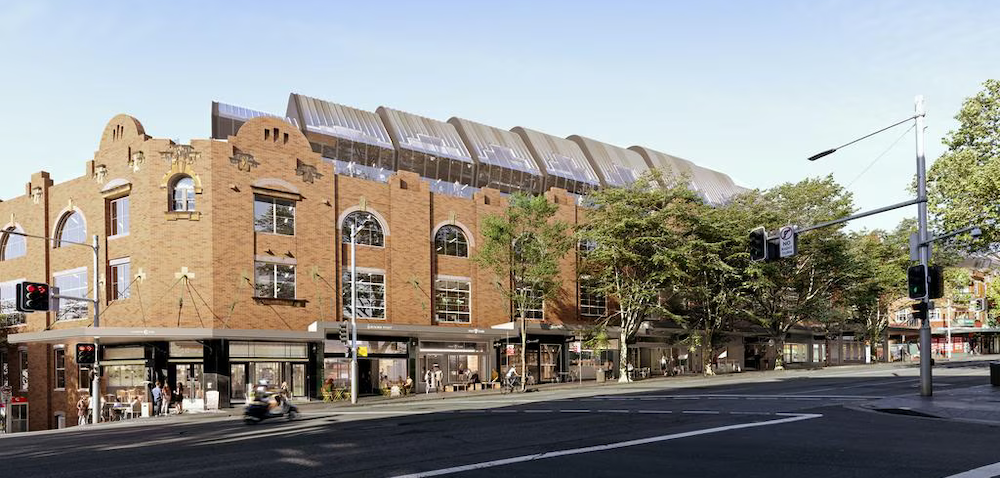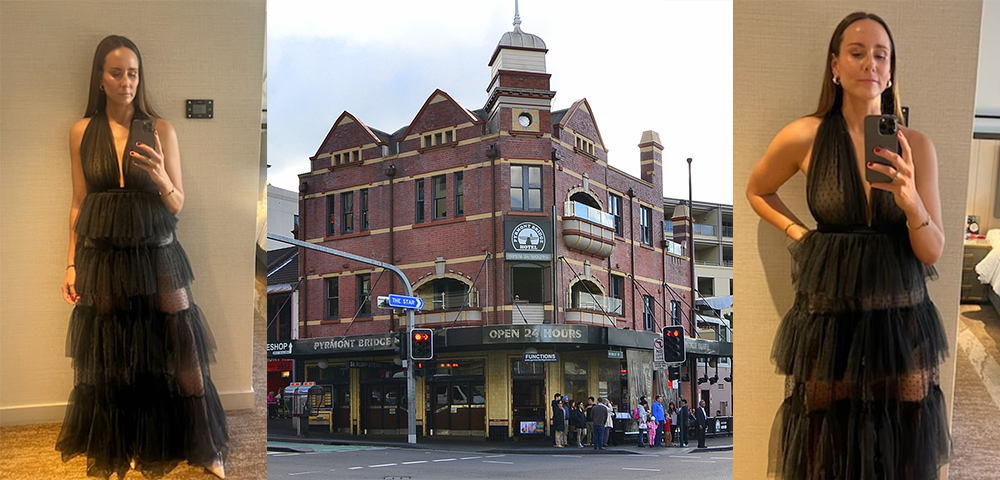
Councillors concerned about funding Waterfront company with Star casino links

In a new series, City Hub explores a NSW government plan to introduce a new private-public model into the planning of urban space. It has labelled them, “Community Improvement Districts”. In Part 1, Wendy Bacon reports on a trial improvement district in Inner Sydney and its relationships with Star Casino and the City of Sydney.
The City of Sydney has written to business organisation Western Sydney Harbour Business Improvement District (BID) expressing councillors’ concerns about its links to Sydney’s Star casino, which has been involved in money laundering and other illegal activities over a long period.
The City has provided $90,000 of grants to the Western Sydney Harbour Star BID, which also uses the name New Sydney Waterfront Company.
Star Casino is a founding member, holds one of 12 directorships and claims to have contributed hundreds of thousands of dollars to the BID. Star appoints a representative director who shares responsibility for key decisions and governance of the BID.
Until 2022, Star was represented on the BID board by Chief Casino Officer Greg Hawkins who will face trial next year on charges that he failed to manage risk at the casino. He resigned from the BID Board in early 2023 and was replaced by a new CEO Robbie Cooke. Cooke resigned from Star after he admitted that he failed to improve the casino’s management and casino.
Other founding members of the Sydney Waterfront Company include global companies, property developer Lendlease, real estate company Markham, office manager GPT and Crown Casino. The only non-business members of its Board are the University of Technology, Sydney and the Powerhouse Museum in Ultimo which have fewer voting rights than the business members.
Council has provided two lots of funding to the Sydney Waterfront Company. In 2021, it provided $40,000 for a “knowledge exchange grant” followed by a further $50,000 in 2023 for a research and feasibility project to develop an “Environmental, Social and Governance (ESG) vision” for the Western Sydney Harbour Precinct.
The previous LNP NSW government also granted $400,000 to the BID.
Since 2021, the BID has developed relationships with smaller businesses inside its selected inner Sydney precinct. This includes 7 kilometres of foreshore from Walsh Bay to Fish Markets and the entire Pyrmont -Ultimo precinct down to Broadway. These businesses include Darling Harbour restaurants and other organisations including Australian Chamber Orchestra. It has set up and chairs working groups to plan for the future of the area, several of which include the City of Sydney and NSW government departments. According to its website, its strategic partners include the global real estate firm Colliers and PwC consultancy.
Through these activities, the BID is working to achieve one of its core purposes which is to trial a controversial model of public-private partnerships in which business leads the future development of public places in collaboration with local governments and community organisations. Both major parties have supported the New Sydney Waterfront Company’s trial of the Business Improvement District model.
The BID model has been used in the UK and United States. The Minns Labor government has little known plans to introduce legislation this year which will enable BIDS to be rolled out across NSW, although it has renamed BIDS as CIDs or Community Improvement Districts. (More on Community Improvement Districts in Part 2 of this series.)
Ellsmore: No grants if Star is a governing member
City of Sydney’s letter expressing Councillors’ concern about Star casino’s role in the BID resulted from a motion moved by Former Deputy Mayor Greens Sylvie Ellsmore that Council withdraw from any association with Star or with any organisation in which Star was a governing member or a beneficiary.
This is the second time Ellsmore has recommended against the City of Sydney granting the BID money. Last year she described the $50,000 grant to develop a governance model as neither “appropriate nor ethical”.
Independent Councillor Adam Worling moved an amendment that deleted the reference to City of Sydney not supporting any organisation with which Star is a governing member or beneficiary. In its place, he moved that Councillors write a letter expressing their concern about Star’s involvement in the BID.
Worling argued that if Ellsmore’s motion passed, it could lead to Council withdrawing support from community organisations that receive Star sponsorship including popular community activities, Christmas at Pyrmont and the Pyrmont Food and Wine Festival. In fact, City Hub has confirmed that although Star sponsors these organisations, it has neither a governing role nor receives financial benefit from their activities.
Councillor Imelda Davis, who lives in Pyrmont, also argued against Ellsmore’s motion both on the basis that Star sponsors valuable community activities and also on the grounds that the BID “brings together many local businesses and organisations …under a common vision to develop the Western Harbour to be a key strategic and economic asset. “If we [City of Sydney] don’t remain involved we will lose the ability to help shape the future of an important area for our local government … we will also lose the opportunity to support our local business community and ensure that the local community issues are considered during these processes.”
Worling’s amendment was passed with the support of Independent Councillors and Labor Councillor Linda Scott.
Dangerous to treat Star like any other organisation
In response to Councillors’ failure to support the thrust of her motion, Councillor Ellsmore told City Hub, “It’s absurd to keep treating the Star like any other local business. More than that – it is dangerous. Right now, the business association led by the Star and Crown casinos that the Council has been funding – ‘The New Sydney Waterfront Co’ – is working to extend its control over the Harbour.
“Through a quiet program called the Business/ Community Improvement District program) the NSW Labor Government is even considering introducing a law which could give The New Sydney Waterfront Co. unprecedented powers, like the power to tax local businesses and have greater control over public space.
Ellsmore continued, “Now more than ever is the time for Council to stand up to the Star casino, not add to their legitimacy by continuing to support their involvement in a business association with public money. Given that the City is the Local Government Authority, I find it odd that councillors would be worrying about having a seat at the table in the planning of such a substantial area of the City – isn’t the City’s role to ensure everyone has a seat at the table including residents and community organisations.”

Star’s involvement in criminal activities
It is not hard to grasp why any organisation might want to steer clear of associating with an organisation that has Star Entertainment on its board. In August 2022, Adam Bell SC found Star was guilty of anti-money laundering and counterterrorism breaches, that it regularly side-stepped rules and had a poor corporate culture. For these and other reasons, the company was unsuitable to manage a casino. Rather than shut down an “illegal cage” through which bags of dirty cash were funnelled through a private gaming room, Star staff had moved the activities into an unbranded room inside the Sydney casino. The company was fined $100 million and a number of its directors and senior executives have been charged by Australian Securities and Investment Commission and will face trials early next year. They include Greg Hawkins who was on the New Sydney Waterfront Company BID board until early 2023.
AUSTRAC has also taken legal action against Star for allowing 117 high-risk VIP patrons to churn billions of dollars of criminal proceeds through its Sydney, Brisbane and Gold Coast casinos for years.
Star was allowed to continue operating under the supervision of a manager appointed by the Independent NSW Casino Commission. But when new allegations emerged that Star had not reformed, Bell was appointed to conduct a second Inquiry this year.
The Inquiry has heard evidence that Star was still falling short in many areas, including a widespread practice of falsifying records of interactions between customer service staff and gamblers and using malfunctioning cash machines that allowed gamblers to defraud Star of millions of dollars. It also has poorly trained and inadequate staff to manage gambling activities.
Last week, counsel assisting Caspar Conde told inquiry head Adam Bell, SC that there is no evidence that Star is fit to hold a casino licence, even under a special manager. Some of Star’s own Board members admitted under questioning that Star is not fit to hold a licence. One of the most embarrassing revelations at the second Inquiry was when Conde asked Star CEO Robbie Cooke to explain a message he sent to the then Chair of Star David Foster shortly before a meeting with the Special Manager. “We are meeting Monday to get ready for war,” he wrote. In response, Foster referred to a plan to get rid of both the regulator and its special manager. Cooke, Foster and other executives left Star during the Second Inquiry. Cooke has also presumably resigned as a director of the BID although a company search still reveals him as a director.
Star claims to have given $500,000 to BID
When they became aware of Ellsmore’s intention to move the motion, both BID CEO Geoff Parmenter and Star were worried.
They subsequently wrote letters which were tabled at the meeting. These letters contradicted each other.
CEO Parmenter wrote, “The Star is one of dozens of Business Members and has nominally held a position on the company’s Board. I say nominally, because The Star has also been arguably the most passive member” of the BID Company. He explained that Hawkins did not attend meetings and that his replacement CEP Robbie Cooks attended just two meetings over 18 months.

He said that the motion was both “perplexing and concerning. We are worried that the Waterfront Company risks suffering significant collateral reputational damage, and we fear for the dozens of our other Members, whose investments and reputations do not deserve to be compromised in this way.” He called on Councillors to reject the motion and support “the effective, constructive and collaborative partnership that has been established and maintained between” City of Sydney and the BID. At risk, he argued, was $25 million that the BID’s commercial landowners and leaseholders “may wish to contribute” into “further Precinct enhancing activities over the next five years.”
Parmenter, who worked at Events NSW before being a Star marketing executive from 2013 to 2018, does not seem concerned that having “passive” directors might itself be seen as a problem or that the links to Star might not be causing other BID partners “reputational damage”.
Star’s acting CEO Janelle Campbell took a strikingly different tack in her letter. According to her, Star is far from “passive”.
She outlined Star’s contribution to the community and employment in the area and stated that “Star’s involvement and support for the Sydney Western Harbour precinct proposal has included a funding investment of over $500,000 in the last two years alone.” The Star is “eager to continue our positive engagement in the bid proposal project, demonstrate our commitment to the Pyrmont community and continue to work hard to return to suitability.” She offered to engage constructively with the Council to address any concerns and invites them to meet with her.
As Campbell suggests, Star will have contributed more funds to the BID in earlier years. If her statement is correct, this means that rather than being passive, Star is a substantial contributor to the BID which states on its website that in the financial year ending June 2023, it received $875500 from private members and $845,200 from government grants.
Campbell’s only mention of Star’s current legal problems was the reference to the casino’s “hope to return to suitability.”
Even the Star recognises that its corporate behaviour has made it unfit to hold a licence. BID Chair Parmenter is clearly more worried about the loss of legitimacy that the City lends to the BID’s activities than he is of the reputational damage to his organisation’s links to with Star, which Bell SC described as a case study in “unethical conduct and cultural failure”.
Meanwhile the City told City Hub it is confident it will receive the BID’s social, environmental and governance plan for the precinct that it funded in June. Hopefully, the public will be able to read it and consider if the funds were well spent.
In our last article on the BID, we invited our readers to consider some questions: Why does a partnership including huge global companies need public funds to develop a social, environmental and governance plan? Will the information underpinning the plan be available to all members of the community? If community groups do not agree with the plan, what opportunities will they have to object? How do the for-profit purposes of the BID’s key companies, including casinos and real estate giants, fit with the social and housing needs of the general public?
Watch for Part 2 of this series: NSW government is quietly moving to establish Business Improvement Districts, renamed Community Improvement Districts. What does it mean for local businesses and communities? If you have views or more information you would like to share, please send it to Wendy Bacon via twitter or reply below.
Wendy Bacon is a retired Professor of Journalism. She has supported the Greens in previous local government elections.


